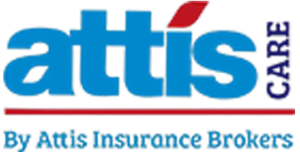On 6th September 2025, the Oliver McGowan Code of Practice officially came into force, marking a pivotal moment in the journey toward equitable, safe and person-centred care for autistic people and people with a learning disability. This Code is now a statutory requirement under the Health and Care Act 2022 and the Care Quality Commission (CQC) will use it to assess whether providers are meeting their legal obligations around staff training.
This week the CQC updated their guidance on how to ensure all staff receive such training. We have broken this down below, including taking a step back to look at the importance of The Oliver McGowan Code of Practice
Why This Code Matters
The Code was developed in response to the tragic death of Oliver McGowan and the broader systemic failings in how health and social care services support autistic people and those with learning disabilities. It aims to ensure that all staff, regardless of their role receive training that is appropriate to their responsibilities, helping to foster safer, more inclusive care environments.
What the Code Requires
CQC-registered providers must ensure that:
- All staff receive training in how to interact appropriately with autistic people and those with a learning disability.
- Training is appropriate to the individual’s role, whether they are frontline care staff, administrative personnel, or in leadership.
- Providers assess training needs, maintain records and demonstrate how training supports safe and effective care.
Understanding the Training Standards
The Code outlines specific standards for training content and delivery. These include:
- Tiered training levels based on staff roles:
- Tier 1: Awareness training for staff with indirect or occasional contact.
- Tier 2: Enhanced training for staff with direct care responsibilities.
- Mandatory components:
- 90 minutes of e-learning
- Live, interactive training (minimum 1 hour for general staff; full day for care staff and leaders)
- Co-production: Training must be developed and delivered with people who have lived experience.
- Accreditation: Training should be independently quality assured.
- Training must be refreshed at least every 3 years.
👉 You can find the full standards and guidance here:
- CQC: Training Staff to Support Autistic People and People with a Learning Disability
- Brief Guide to Mandatory Training
Auditing Your Current Training Against the Code
With the Code now active, providers must review and audit all existing training to ensure it aligns with the new legal standards. This is not just a compliance exercise but about ensuring that every member of staff is equipped to deliver safe, respectful and person-centred care.
What to Audit
- Training content: Does it include how to interact appropriately with autistic people and people with a learning disability?
- Training delivery: Is it co-produced and co-delivered by people with lived experience?
- Training format: Does it include the required components (e.g., e-learning, live sessions)?
- Training relevance: Is it tailored to the staff member’s role and level of contact with individuals?
- Training records: Are there clear records of who has completed what and when?
Next Steps for Providers
- Map existing training against the Code’s standards (more below)
- Identify gaps in content, delivery, or staff coverage.
- Develop an action plan to update or replace non-compliant training.
- Document decisions—especially if any staff are deemed not to require training.
- Prepare evidence for CQC inspections, including training plans, records and staff interviews.
Mapping Training Against the Code
Use the following steps to audit and map your training:
- Step 1: Make a log of all existing training related to autism and learning disability, including the delivery method, duration and target audience.
- Step 2: Check each module against the Code’s requirements for content, format and delivery to identify gaps (e.g. missing co-production, insufficient duration).
- Step 3: Categorise staff by role and level of contact and determine which tier of training each staff member requires.
- Step 4: Record rationale for training decisions, especially if any staff are deemed not to require training and prepare to justify these decisions during CQC inspections.
- Step 5: Develop an action plan and schedule updates or replacements for non-compliant training. Don’t forget to plan refresher training or set a reminder in your calendar for this.
The Core Capabilities Frameworks for learning disability and autism are two separate frameworks which form a strong foundation of the Oliver McGowan Code of Practice. The frameworks describe capabilities i.e. the attributes (skills, knowledge and behaviours) which people bring to their work
- Core Capabilities framework for supporting people with a learning disability: Learning-Disability-Framework-Oct-2019.pdf
- Core Capabilities framework for supporting autistic people: Autism-Capabilities-Framework-Oct-2019.pdf
CQC’s Approach to Compliance
The Code of Practice has a strong foundation in the Core Capabilities Frameworks for learning disability and autism. These frameworks give a clearer idea of the depth of training required for different roles. It is not CQC’s role to tell providers or managers what they must do to deliver their services.
Regulation 18: Staffing was amended in 2022 by the Health and Care Act 2022 and CQC will take action if providers:
- are not in a position to demonstrate they are compliant with the regulation
- have not considered the requirements of the regulation
- have not mitigated the risks of staff not being trained
When assessing services, CQC will:
- Review training plans, records and delivery schedules.
- Interview staff to confirm understanding and competence.
- Check whether training aligns with the Code’s standards.
- Consider breaches of other regulations (e.g., person-centred care, safeguarding) if training deficiencies impact care quality.
Funding this Training
The Department of Health and Social Care (DHSC) will be providing funding in Autumn 2025 to support with the rollout of the Oliver McGowan Mandatory Training to the adult social care sector, via the same online claims service as the Learning and Development Support Scheme (LDSS). Training completed between April 2025 and March 2026 will be eligible for reimbursement. This funding will be specific to Oliver’s Training and separate to the overall LDSS funding already available for other training and qualifications. DHSC will confirm the position beyond March 2026 in due course
Our Thoughts
The Oliver McGowan Code of Practice is more than a regulatory requirement, it’s a commitment to equity, dignity and quality in care. Providers who embrace its principles will not only meet legal standards but also deliver better outcomes for the people they support.
Whilst the Oliver McGowan training is still not mandatory, it has been recognised by the CQC but ultimately it is up to the care provider to decide the best method for training their staff to meet the standards outlined. Remember, the Oliver McGowan Training is being funded till March 2026, so from a business cost perspective, it makes sense to utilise this funding.
Many thanks to our sponsors:
- Prosperwell: https://www.prosperwell.co.uk/
- Care Business Associate Training: https://cbassociatetraining.co.uk/
- Attis Insurance Brokers LTD: https://www.attisinsurancebrokers.com/
- Log My Care: https://www.logmycare.co.uk/
- Florence: https://www.florence.co.uk/
- Health Automated https://www.healthautomated.online/
- Enlearningment https://enlearningment.co.uk/
- Every Step Care Consultancy https://everystepcare.com/









